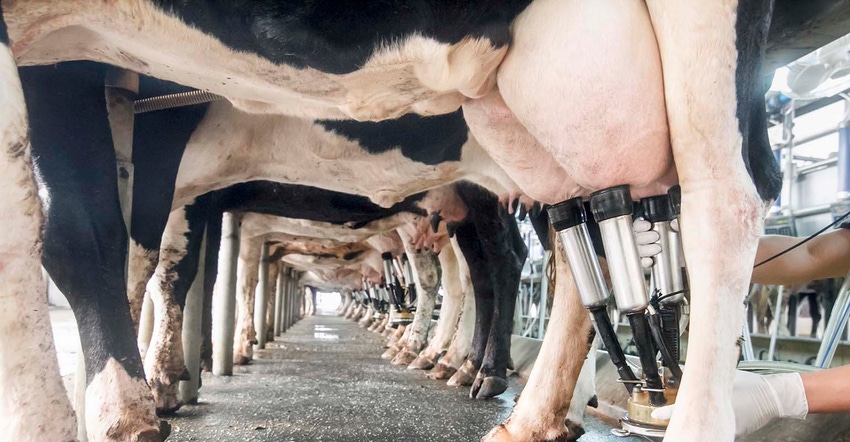
The mainstream press is critical of President Trump regarding tariffs. Regarding Canada’s dairy tariff, the president is absolutely correct. Prime Minister Trudeau may be a sympathetic figure and President Trump the bully, but on dairy, this is absolutely wrong.
President Trump is attempting to level the playing field. The Daily Caller News Foundation has published a column on the facts related to the dairy dispute. There is no question that production of raw milk at the farm level is exceeding demand by American families.
Canada’s supply management system
Canada heavily regulates its entire dairy industry with a supply management system. It sets quotas for dairy products imported to Canada. The quotas are called tariff rate quotas (TRQs). Under this system a product is imported into Canada with no tariff so long as it is below the quota. For example, Canada allows 64,500 metric tons of fluid milk into the country from the U.S. This sounds good. However, this quota is subject to a trick. Canada assumes this quota is filled by its citizens going across its border to buy milk in U.S. grocery stores. If a U.S. Exporter wishes to send fluid milk into Canada it finds the quota has been filled, and the fluid milk shipped to Canada is subject to a whopping 241% tariff.
Ultra-filtered milk is what the president is referring to when he claims there is a 270% tariff. Dairy farmers knew they could not export fluid milk to Canada, and developed ultra-filtered milk, a concentrated milk protein used to make yogurt, cheese and cheese which goes on pizza.
Canada also allows imports of some dairy products if that dairy product will be put into additional manufactured products such as pizza exported back to the United States.
The Daily Caller column states that some dairy products "...are subject to tariffs ranging from 201.5% to 313.5%.” The Canadian government, in an effort to stop U.S. dairy export of ultra-filtered milk, created "...a new 'Class 7' dairy pricing regulation last year and set prices for milk protein concentrates..." This pricing regulation caused Canadian manufacturers to buy much less ultra-filtered milk from U.S. dairy producers.
The Canadian Class 7 pricing system is what the president is referring to when he points out Canadian tariffs have imposed a 270% tariff on U.S. dairy producers. The Daily Caller states that U.S. ice cream products are subject "...to a 277% over-quota tariff."
The Daily Caller notes, as we all know, that growth potential for dairy, grains and meat markets are export markets, not domestic markets. The column recognizes the fact that Wisconsin alone lost 500 dairy farms in 2017.
Justin Trudeau never points out the facts just discussed, nor does it seem that any of our agricultural spokespeople, who should be backing up the president on his effort to level the playing field.
The only thing the president seems to be incorrect on is the fact tariffs from Canada are even higher than 270%.
Hopefully leaders in U.S. agriculture will start backing the president when he is trying to help agriculture. About all you see from U.S. agriculture leaders is an expression of deep concern about how trade disputes and wars harm U.S. agriculture. It is sad our president, with no agriculture experience, has to defend American agriculture by pointing out how poorly we in agriculture are being treated.
The opinions of the author are not necessarily those of Farm Futures or Farm Progress.
About the Author(s)
You May Also Like




